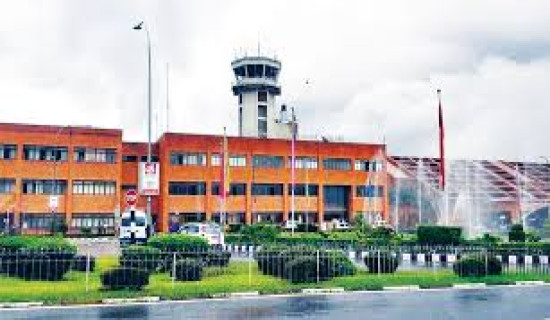- Saturday, 28 February 2026
National ICT Day: ICT No Longer Luxury, But Necessity
Kishor Basyal
If there is one thing that defines the characteristics of post-COVID era, it is the accelerated pace of digitisation. And it is information and communication technology (ICT), which mostly derives its power from the internet, that has fueled the trend.
From the invention of steam engine to the revolution in agriculture, healthcare, transportation, medicine among a vast range of revolutions, humankind has made a remarkable technological progress in the last 300 years or so. But perhaps none is as all-encompassing as ICT. That’s because every human endeavour, whether at work or at home, is now underpinned by it, and it has transformed every aspect of human life in ways others have fallen short.
Scope
Much has been done in the expansion of use and scope of ICT. Now every government-provided service, from making property-related transactions to obtaining driving license, has gone online, requiring all service seekers to mandatorily use ICT. That’s not an ordinary feat as it has far-reaching implications. For one, it prevents crowding in and around government offices. In the wake of the pandemic, the word ‘crowding’ has become highly negative. Second, it has made the entire transaction procedure transparent, which, in turn, has made it harder, if not impossible, to engage in malpractices like taking kickbacks.
It has become abundantly clear that ICT is now not a luxury, but a necessity. At a time when the pandemic and the subsequent restrictions were keeping teachers and students alike out of schools, threatening to reverse all the hard-earned educational gains made over the decades, ICT came to their rescue. Soon after the outbreak, great many schools adopted virtual teaching-learning methods, keeping both teachers and students in school-like environment and saving a great deal of time and resources in the process.
But that is not to imply that all is well. On one hand, that was the case, but on the other, we were hearing several guardians complaining that a lack of smartphone or the internet access has kept their wards from attending virtual classes. For such guardians and students, virtual teaching-learning activity means nothing. To our surprise, such conditions were even reported from schools on the outskirts of the Kathmandu Valley. Of course, the situation demands no complacency.
ICT is more than a technology; it is also a productivity-enhancing tool, which people from across the professional spectrum use it to excel in their professions. The pandemic has changed offices and the way work is done. Almost all offices have redesigned their workspace to suit the post-pandemic era, with use of ICT tools lying at the centre.
What’s more, the advent of ICT has come as boon for e-commerce, a business of buying and selling goods and services online, which also heavily uses ICT. E-commerce has created a host of new jobs. Add to that the growing popularity of ride-hailing services which has eased the traffic gridlocks in city areas. This has opened the doors of self-employment for many. What can be said unequivocally is that the more people are accustomed to the use of ICT, the more likely to enhance their chances of getting employed.
ICT has a great potential to reduce the consumption of fuel as well as air pollution, resulting from it. The skyrocketing prices of fuel have become a headache for all. If more and more people commute less to and from their office, use of oil will surely come down. Consuming less fuel also means lowering our contribution to climate change. The importance of ICT has heightened in the aftermath of the pandemic. Its miraculous ability to deliver services without requiring soliciting it in physical presence is what makes it all-powerful.
Healthcare is another sector whose service delivery has become efficient with the use of ICT tools, so much so that doctors and health professionals were able to provide services to the patients online when going to hospital to see a doctor was a nightmare.
ICT is the key to improving a nation’s economic performance as well as people’s wellbeing, with its adoption being key indicator of prosperity. According to the World Bank, every 10 per cent penetration of the internet contributes to the GDP growth rate of 1.3 per cent. It is also true that ICT is one of the key drivers of globalisation.
Boost internet access
But, no matter how much we say or write in praise of ICT, widening digital-divide is the fact of life. On the one side, there is a section of population that has it all, but on the other, another section has little or nothing at all. A majority of the country’s population dwell in rural areas, where neither the schools nor the pupils have sufficient access to tools of ICT. That has deprived them of a chance to get even a rudimentary education, among other problems. Enhanced access to the ICT creates a level playing field so that everyone gets benefited from it that is changing the way of thinking and doing of humanity.
Given such scenario, it is incumbent on the government to enact policy to plug the gap of digital divide. It should also act to lower the internet charge Nepali people are paying which is high by every measure.
(Basyal works as a journalist at The Rising Nepal)
















